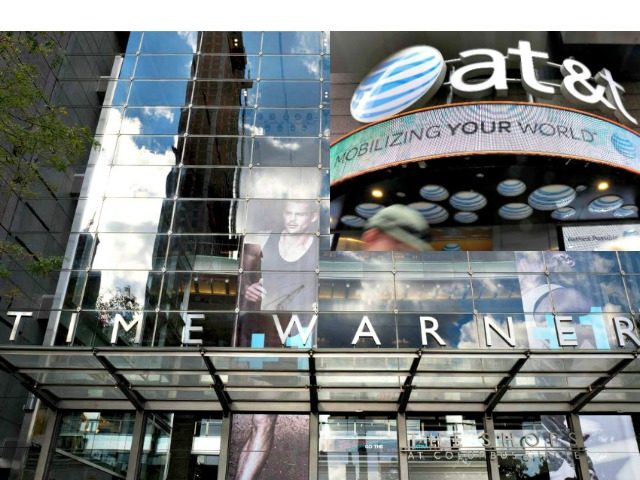DOJ’s Antitrust division, under the leadership of just-confirmed Assistant Attorney General Makan Delhrahim, announced Monday it would file suit to stop the proposed merger between AT&T and Time Warner.
Although stopping the monster media deal featured prominently in President Donald Trump’s campaign rhetoric, a senior DOJ official repeatedly staved off reporters’ questions about White House influence, denying it played any role in the decision to file suit in U.S. District Court for the District of Columbia.
Voices from across the political spectrum have made their opposition to the deal known in recent months, including such unlikely bedfellows as Tea Party groups like Americans for Limited Government and ultra-liberal senators like Bernie Sanders (I-VT) and Elizabeth Warren (D-MA). The concentration of the traditional media market into fewer and fewer companies is a common thread linking these disparate sources of concern.
“We believe and our investigation has found, that the merger would harm competition, resulting in higher bills and less innovation for millions of American consumers,” a senior DOJ official told reporters.
The antitrust lawsuit will proceed on a theory it creates an impermissible “vertical integration” – consolidating two parts of a supply stream, in this case content creation and telecom distribution – to the point where it would harm competition. This type of antitrust action has been less common in the modern era of enforcement, but nevertheless has a long history in American antitrust law.
Time Warner, one of the country’s largest content creators, owns television networks HBO, CNN, and TBS; film studio Warner Brothers, and dozens of other household names. It was once joined to its own cable network until the two divisions split in 2009. The over $100 billion merger with AT&T would connect that content empire with the country’s largest telecom company and also DirectTV, the country’s largest satillite network, which AT&T already owns, creating the potential to increase the costs for competitors that also use Time Warner’s content.
“The combined company will use its control of Time Warner’s popular and valuable networks to hinder its rivals, forcing them to pay hundreds of billions of dollars more per year for the right to distribute those networks,” a senior DOJ official said.
The DOJ’s press release cites a DirectTV document claiming the post-merger company “can much more credibly threaten to withhold programming from rival [distributors]” and can “use such threats to demand higher prices and more favorable terms.”
This type of “raising rivals’ cost” analysis is a cornerstone of modern antitrust law. While those concerns can be assauged by divestments and consent decrees, in this case Delrahim’s antitrust division thought it necessary to file suit against the deal as currently constituted.
AT&T hosted a press conference shortly after the DOJ lawsuit was announced, vigorously disputing the government’s assertions. “A serious and very troubling departure from antitrust guidelines and decades of legal precedence,” eminent attorney Daniel Petronelli, representing the companies, told reporters.
Petronelli took issue with the government’s understanding of the marketplace, citing Google and, with it, YouTube video service Amazon, Netflix, and Facebook as its likely competitors, in addition to other cable companies. These internet giants, like the proposed AT&T-DirectTV-Time Warner company that would exist post-merger, are highly vertically integrated, both producing content and distributing it on their streaming services.
“[This lawsuit] stretches the very reaches of antitrust law beyond the breaking point,” AT&T CEO Randall L. Stephenson declared. “We do not intend to settle this matter out of expediency because the rule of law is at stake.”
Furthermore, Stephenson was dismissive of the idea of consenting to divest from mainstream media stalwart CNN in order to save the deal. “Any agreement that results in us divesting CNN is a non-starter,” he said.

COMMENTS
Please let us know if you're having issues with commenting.